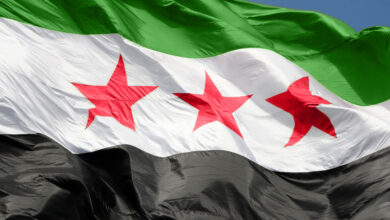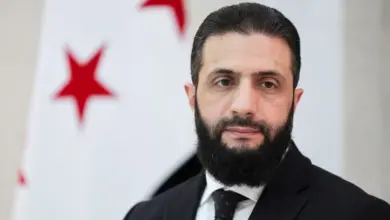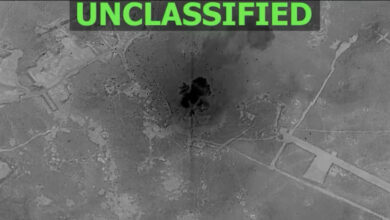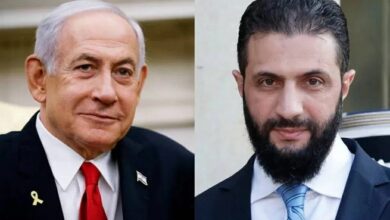
Syrian government forces were poised to advance into the Islamic State stronghold of Raqqa province and allied Russian jets kept up air strikes on rebel-held towns north of Aleppo, the Syrian Observatory for Human Rights reported on Saturday.
An advance into Raqqa would re-establish a Syrian government foothold in the province for the first time since 2014 and may be aimed at pre-empting any move by Saudi Arabia to send ground forces to fight Islamic State militants in Syria.
Russia is pressing ahead with its four-month-old air campaign in support of President Bashar al-Assad ahead of "a cessation of hostilities" agreed by major powers on Friday. The agreement is due to come into effect in a week.
The Syrian army announced the capture of more ground in the northern Aleppo area, where its advances backed by allied Lebanese Hezbollah and Iranian fighters have cut the main rebel supply route from Turkey into opposition-held parts of Aleppo.
If its forces retake Aleppo and seal the Turkish border, Damascus would deal a crushing blow to the insurgents who were on the march until Russia intervened last September, shoring up Assad's rule and paving the way to the current advances.
The cessation of hostilities agreement falls short of a formal ceasefire, since it was not signed by the warring parties — the government and rebels seeking to topple Assad in the five-year-long war that has killed 250,000 people.
Russia has said it will keep bombing Islamic State and the al Qaeda-linked Nusra Front, which in many areas of western Syria fights government forces in close proximity to insurgents deemed moderates by Western states.
Helped by Russian air power, the Syrian army and its allies have been pursuing offensives on crucial front lines of western Syria, while also attacking Islamic State further east.
The Observatory said government troops were just a few kilometers from the provincial borders of Raqqa after making a rapid advance eastwards along a desert highway in the last few days from Ithriya. The Syrian army could not immediately be reached for comment.
The Syrian government has not had a major foothold in Raqqa province since Islamic State insurgents captured Tabqa air base in 2014. "They are on the provincial borders of Raqqa," Observatory director Rami Abdulrahman told Reuters.
The ultra-hardline Islamic State, whose main aim is to expand its "caliphate" rather than toppling Assad and reforming Syria, is being targeted in separate campaigns by a US-led alliance and the Syrian government with Russian air support.
US-allied Kurdish forces are also fighting Islamic State in Raqqa. Last year, they advanced into Raqqa province from the northeast, capturing an Islamic State-held town at the border with Turkey.
Gulf states that want Assad gone from power have said they would be willing to send in troops as part of any US-led ground attack against Islamic State. US Defense Secretary Ash Carter said on Friday he expected Saudi Arabia and the United Arab Emirates to send commandos to help recapture Raqqa.
In what may have been a response to those remarks, Russian Prime Minister Dmitry Medvedev said on Saturday there was no need to scare anyone with a ground operation in Syria.
The Syrian government has said that any foreign forces in the country without its consent will be fought.
Aleppo Air Strikes
Saudi Arabia's foreign minister, Adel al-Jubeir, said in an interview published on Saturday that Russia's military interventions will not help Assad stay in power. "There will be no Bashar al-Assad in the future," he told a German newspaper.
The complex, multi-sided civil war in Syria, raging since 2011, has drawn in most regional and global powers, producing the world's worst humanitarian emergency and attracting jihadist recruits from around the world.
A US State Department spokesman said on Friday Assad was "deluded" if he thought there is a military solution to the war.
Two Syrian rebel commanders told Reuters on Friday insurgents had been sent "excellent quantities" of Grad rockets with a range of 20 km by foreign backers in recent days to help confront the Russian-backed offensive in Aleppo.
Foreign opponents of Assad, including Saudi Arabia and Turkey, have been supplying rebel groups with weapons via a Turkey-based operations centre.
Some of these groups have received military training overseen by the US Central Intelligence Agency. The rebel groups have been a regular target of the Russian air strikes.
Russian warplanes carried out at least 12 raids on rebel-held towns north of Aleppo overnight Friday-Saturday, the Observatory said.
The army said late on Friday it had captured three areas to the northwest of Aleppo — advances confirmed by the Observatory.
French Prime Minister Manuel Valls called on Russia on Saturday to stop bombing civilians in Syria, saying this was crucial for achieving peace in the country.
"France respects Russia and its interests … But we know that to find the path to peace again, the Russian bombing of civilians has to stop," Valls said in a speech at a security conference in Munich.
Russia has denied targeting civilians. Medvedev said on Saturday it was simply not true.
"There is no evidence of our bombing civilians, even though everyone is accusing us of this," Medvedev told a security conference in Munich, moments after French Prime Minister Manuel Valls said Russian bombing of civilians must stop.
"Russia is not trying to achieve some secret goals in Syria. We are simply trying to protect our national interests," he said, adding that Moscow wanted to prevent Islamist militants getting to Russia.




